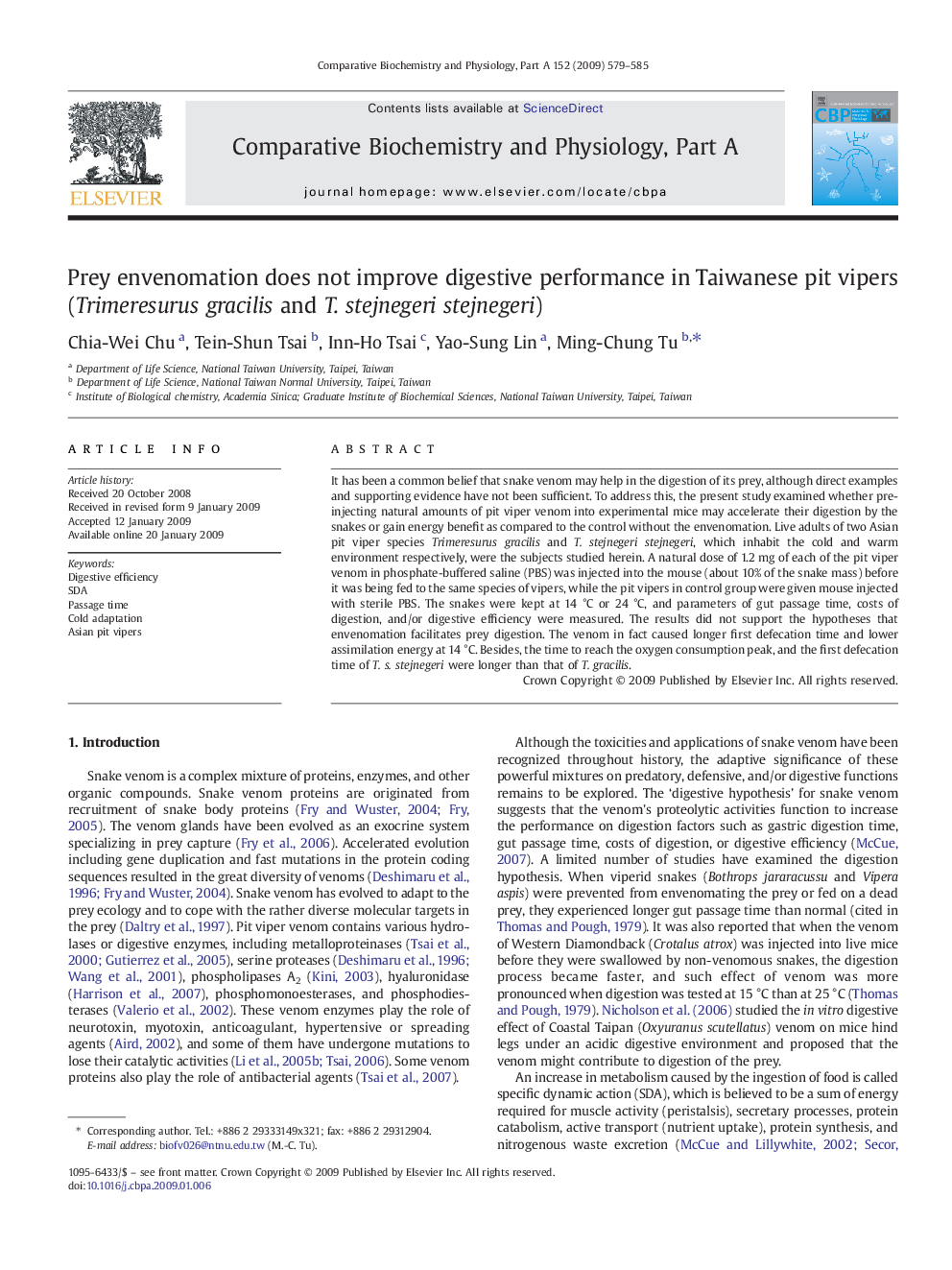| Article ID | Journal | Published Year | Pages | File Type |
|---|---|---|---|---|
| 1974643 | Comparative Biochemistry and Physiology Part A: Molecular & Integrative Physiology | 2009 | 7 Pages |
It has been a common belief that snake venom may help in the digestion of its prey, although direct examples and supporting evidence have not been sufficient. To address this, the present study examined whether pre-injecting natural amounts of pit viper venom into experimental mice may accelerate their digestion by the snakes or gain energy benefit as compared to the control without the envenomation. Live adults of two Asian pit viper species Trimeresurus gracilis and T. stejnegeri stejnegeri, which inhabit the cold and warm environment respectively, were the subjects studied herein. A natural dose of 1.2 mg of each of the pit viper venom in phosphate-buffered saline (PBS) was injected into the mouse (about 10% of the snake mass) before it was being fed to the same species of vipers, while the pit vipers in control group were given mouse injected with sterile PBS. The snakes were kept at 14 °C or 24 °C, and parameters of gut passage time, costs of digestion, and/or digestive efficiency were measured. The results did not support the hypotheses that envenomation facilitates prey digestion. The venom in fact caused longer first defecation time and lower assimilation energy at 14 °C. Besides, the time to reach the oxygen consumption peak, and the first defecation time of T. s. stejnegeri were longer than that of T. gracilis.
